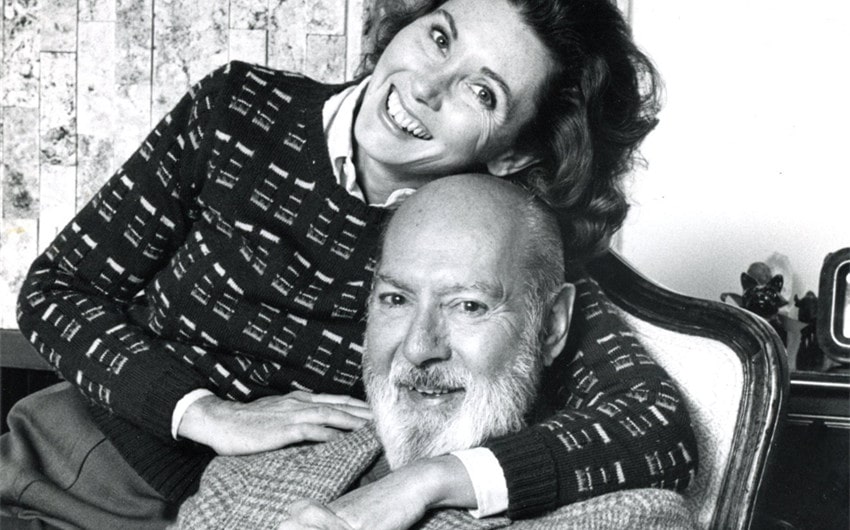Harry Ackerman’s Net Worth: The Producer Who Shaped Classic Television History
What was Harry Ackerman’s net worth, and how did his creative legacy translate into long-term financial success? Best known for producing some of America’s most iconic sitcoms, Ackerman’s influence on 20th-century television is undeniable. As of his passing in 1991, his estimated net worth was believed to be between $5 million and $10 million—a considerable fortune for a producer of his time.
Though many modern audiences may not immediately recognize his name, they’ve almost certainly encountered his work. Ackerman’s fingerprints are all over the golden age of television, from Father Knows Best to Bewitched, and his financial legacy reflects the enduring popularity of the shows he helped bring to life.
Who Was Harry Ackerman? TV Pioneer with a Golden Touch
Harry Ackerman was born in 1912 in Albany, New York, and embarked on a creative path early in life. Before television became the dominant medium, Ackerman cut his teeth in radio, writing and producing for several popular programs. His background in radio storytelling helped shape his understanding of pacing, dialogue, and character—skills that would serve him well as television emerged in the post-war era.
In the 1940s and 1950s, Ackerman joined CBS and rose quickly through the ranks to become vice president in charge of programs for the West Coast. At a time when television was still developing its identity, Ackerman played a pivotal role in shaping programming that would appeal to American families. His ability to identify talent, develop relatable characters, and understand the emotional undercurrents of middle-class life helped define the sitcom genre as we know it.
Later, Ackerman moved to Screen Gems, the television arm of Columbia Pictures, where his most legendary contributions took form. It was here that he helped develop and produce Father Knows Best, a show that ran from 1954 to 1960 and became one of the most influential family sitcoms of the decade. Its portrayal of suburban American life set a template for many shows that followed.
Ackerman’s crowning achievement may well have been Bewitched, which premiered in 1964 and ran for eight seasons. The series starred Elizabeth Montgomery as a witch trying to live a normal life in suburbia, and it cleverly combined family themes with fantasy elements. The show was both a ratings success and a pop culture phenomenon, and it has remained in syndication for decades.
Other notable shows in Ackerman’s portfolio include Gidget, The Flying Nun, The Monkees, and Hazel. His unique ability to blend humor, relatability, and imaginative premises made his productions accessible to broad audiences while also standing the test of time.
Harry Ackerman’s Net Worth: A Historical Estimate
Harry Ackerman’s estimated net worth at the time of his death in 1991 was likely between $5 million and $10 million. While that number may not seem as massive as the figures attached to today’s top TV producers, it represents significant success for someone who worked primarily during television’s first few decades. This estimate is based on his longtime executive positions, producer contracts, and royalties from shows that continued to generate income long after they originally aired.
Ackerman was among the early television figures who understood the financial potential of syndication and reruns. Shows like Father Knows Best and Bewitched became staples of afternoon TV and cable reruns, particularly in the 1980s and beyond. These deals likely brought in royalties for both Ackerman and the production companies involved, contributing to his overall wealth.
His production work wasn’t just limited to single-season projects—many of the series he helped bring to life ran for five or more years, giving him sustained income and increasing the long-term value of his creative rights. In many cases, producers like Ackerman received ongoing residuals for their involvement, which would accumulate over time as networks and later streaming platforms acquired the rights for rebroadcast.
Income Sources in His Career
One of Ackerman’s most consistent sources of income was his work as a producer under Screen Gems, a studio that served as a powerhouse for mid-century American television. His role allowed him not only to shape the creative vision of numerous series but also to participate financially in their production and distribution.
As a studio executive, Ackerman would have negotiated contracts that included compensation for development work, pilot production, and series oversight. In many instances, especially for long-running or successful shows, producers received bonuses tied to viewership ratings, merchandising opportunities, and international licensing.
Ackerman also served in executive capacities at CBS, where he was responsible for overseeing programming across multiple genres. This position came with both prestige and a high salary for the time, especially given his influence over some of the network’s most successful series.
In addition to salary and royalties, Ackerman may have held minor equity in some of the shows he developed or participated in licensing negotiations for syndication. These arrangements, while more common today, were starting to take shape during his peak years and could have contributed to a more robust financial portfolio.
Long-Term Financial Impact and Estate Considerations
Even after his death, Harry Ackerman’s contributions to television continued to generate revenue. His estate would have benefited from the continued syndication of shows like Bewitched and Father Knows Best, both of which remained in circulation through the 1990s and early 2000s on cable networks like Nick at Nite, TV Land, and Hallmark Channel.
While details of his estate are private, it’s likely that any surviving heirs received residual income from these properties, especially if Ackerman retained any partial rights or royalties. With the rise of streaming platforms in recent years, many of the shows Ackerman helped create have found new life with digital audiences. This has potentially added further posthumous value to his estate.
It’s also worth noting that Ackerman received multiple honors during his lifetime, including two Emmy Awards and induction into the Television Academy Hall of Fame. These accolades helped solidify his reputation within the industry and likely elevated the demand for his archived work.
His wife, actress Elinor Donahue—who herself was a prominent television star—survived him and may have continued to oversee parts of his professional legacy. Together, their contributions to television spanned multiple decades and shaped a shared wealth that reflected both creative achievement and smart navigation of the entertainment business.
Featured Image Source: palosverdespulse.com







